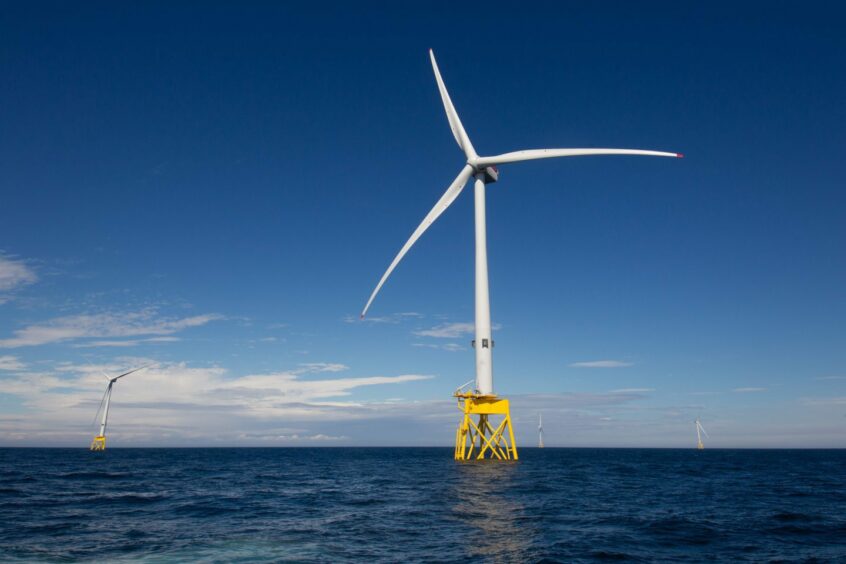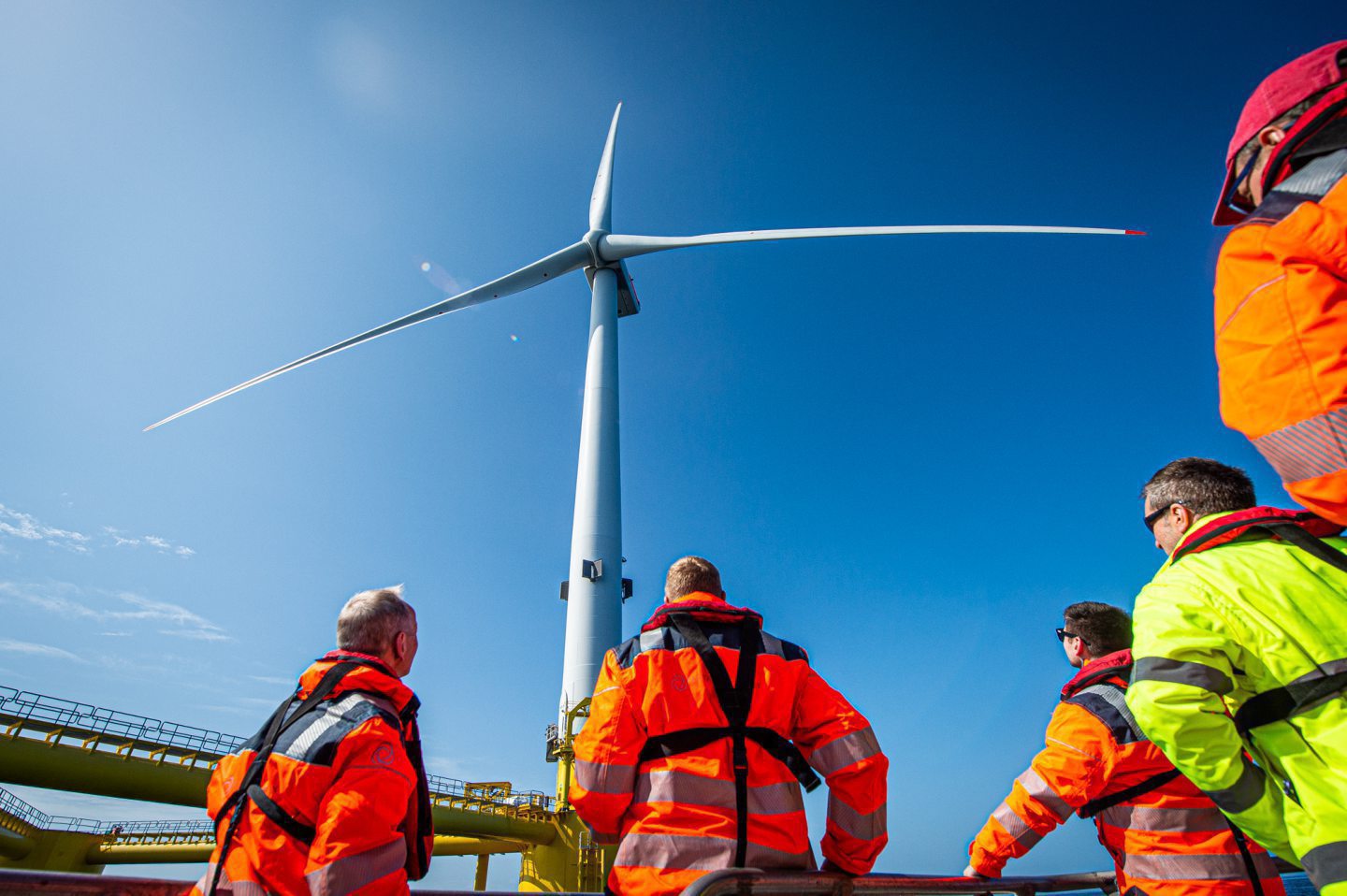
The “net zero economy” – from renewables and electric cars to green finance – grew 9% in 2023 to contribute £74 billion to the UK, a report has shown.
Net zero businesses, supply chains and spending by employees were worth 3.8% of the overall UK economy, the study commissioned by the Energy and Climate Intelligence Unit (ECIU) said.
The sector supported the equivalent of 765,700 full-time jobs, the report by CBI Economics, with analysis from The Data City, found.
The green sector is also a major player in areas with high levels of deprivation and in key electoral battlegrounds, according to ECIU, which urged politicians to make sure net zero could deliver more growth.
The study looks at the value of “net zero” businesses, ranging from renewables, recycling and low emissions vehicles to carbon capture, heating, building technologies and agritech, as well as supply chains and their wider economic impact.
Net zero jobs were higher paid and more productive than the wider economy, the sector attracted billions in foreign investment, and areas outside London had particularly strong green economies, it found.
Net zero activity is especially important to the Scottish economy, adding 5.7% to the economy and supporting 85,500 jobs, largely due to Scotland’s natural advantages for renewable energy such as wind power.
Wales and the Midlands were also strong areas for the net-zero economy.
The report also highlighted that hotspots for net zero activity were in key battleground constituencies for the next general election, including High Peak in Derbyshire, Cheadle in Greater Manchester, and Derby North.
Some areas with particularly high concentrations of green businesses are in some of the most deprived parts of the county, such as Hartlepool, Nottingham, Redcar and Cleveland.
The ECIU warned that while the net zero sector was bucking the trend of UK economic stagnation, policy U-turns on green measures were undermining investor confidence in the country.
Peter Chalkley, director of the ECIU, said: “Against the backdrop of economic stagnation, the net zero economy is bucking the trend, but it’s clear that the policy U-turns of the past year have damaged investor confidence at a time when the US and EU are investing billions to compete for clean industries.
“Thousands of jobs depend on net zero in constituencies right across the country, including many key battleground seats.
“The question now is will political parties provide the leadership, stability and investment needed to generate further growth or shy away from the global race for net zero?”
Louise Hellem, chief economist at the CBI, said: “The UK’s transition to net zero brings immense opportunities for our economy.
“Our report, together with the Energy and Climate Intelligence Unit, highlights how businesses are already seizing those prizes – creating jobs and attracting investment, whilst boosting our energy resilience.
“But we also know that there’s much work to be done to fulfil the UK’s potential, and accelerate our journey to net zero.”
She warned businesses continued to face “difficult headwinds” this year and wanted to see greater clarity on a long-term plan for the energy transition.
She called for a net zero investment plan to identify investment gaps in the green sector and implement policy aimed at “crowding in” private finance.
The UK has legally binding targets to cut greenhouse gas emissions to zero overall – known as net zero – by 2050 to end the country’s contribution to climate change.
That will involve a wholesale transformation of where we get our electricity from, how we get around, how we heat our homes, how the countryside is managed and how food is grown.
Concerns have been raised about where the costs of the transition will fall, but others have pointed to the growth opportunities of making the shift to a green economy, as well as other benefits ranging from reducing air pollution and boosting health to increasing energy security and restoring nature.
A Department for Energy Security and Net Zero spokesperson said: “We welcome these findings, which are testament to our world-leading plans to transform the energy industry towards more clean and renewable energy.
“We have a clear strategy to boost UK industry and reach net zero – with over 80,000 green jobs being supported or in the pipeline since 2020, and over £200 billion in public and private low carbon investment since 2010.
“We will continue to work closely with the private sector on strategic investments, with £100 billion of private investment already expected by 2030.”
Recommended for you

 © Supplied by TotalEnergies
© Supplied by TotalEnergies © Supplied by Wullie Marr/ DCT
© Supplied by Wullie Marr/ DCT © Supplied by Mocean Energy
© Supplied by Mocean Energy